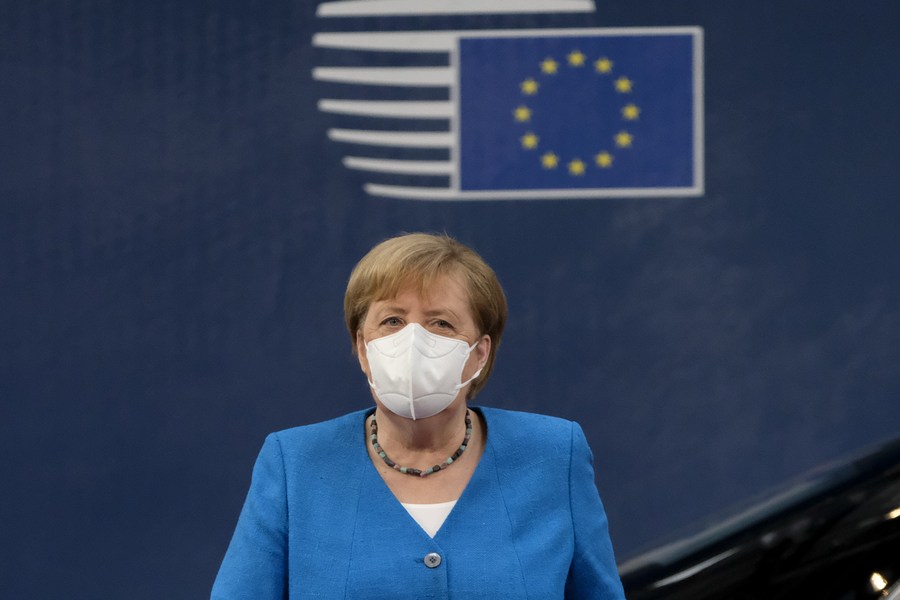Mask-wearing plays big in Europe's post-lockdown protocol


BRUSSELS/PARIS - France on Monday joined the ranks of European countries which have mandated the use of face masks in all indoor public places, in another sign that the face mask is playing big in Europe's post-lockdown measures to limit COVID-19 transmission.
Before France, multiple governments - from Belgium, the Czech Republic, Greece, and Romania to Slovenia, Albania, and Serbia - have already obliged their citizens to cover their mouth and nose in indoor public spaces.
A dozen other European countries such as Britain, Austria, Italy, Hungary, Poland, Spain, the Netherlands, Ireland and Malta have mandated the use of face masks on public transport.
MASK-WEARING IN PUBLIC SPACES IN FRANCE
On Monday, the French government's order to make mask-wearing mandatory came into effect, amid worrying signs of acceleration of the virus circulation and a growing number of clusters.
According to the order, wearing a face mask is now compulsory for all people over the age of 10 in restaurants and hotels, shops, covered markets, museums, cinemas, concert halls, places of worship, airports and stations, libraries, vacation centers, administrations and banks.
Any person who refuses to comply will pay a fine of 135 euros (154.7 U.S. dollars).
"That is because we note that there are worrying signs of resumption of the epidemic in certain places of the national territory," Health Minister Olivier Veran told France Info radio on Monday morning.
Since the lifting of lockdown on May 11, health authorities have detected between 400 and 500 active coronavirus clusters resulted mainly from family meetings during the summer holidays, the minister added.
On July 16, the region of Mayenne in northwestern France took the lead by ordering the public to start wearing face masks in all public spaces after an increase in the number of coronavirus infections in six communes.
ELSEWHERE IN EUROPE
In France's northern neighbor Belgium, the rule on the compulsory wearing of a face mask in public places came into force on July 11.
"Everyone over the age of 12 is obliged to cover their mouth and nose with a mask or any other fabric alternative in the following establishments: shops and shopping centers, cinemas, concert or conference halls, auditoria, places of worship, museums, libraries, casinos and gambling halls, and the buildings of the justice system," according to the Belgian government's official gazette.
The fine for refusing to wear a mask in the situations where one is required amounts to 250 euros -- the same as for all other lockdown offenses since the beginning of the COVID-19 crisis, reported the newspaper Brussels Times.
On July 14, the Albanian government announced it has decided to mandate the use of masks in indoor public spaces to help curb the spread of COVID-19.
"With the decision of the Technical Committee of Experts, we have decided that the use of protective masks or barriers to be mandatory in public transport or high-risk activities, and from now to be used indoors as well," said Albanian Minister of Health and Social Protection Ogerta Manastirliu.
"We can fight this disease by using simple weapons, such as the use of a mask. Scientific communities have admitted that protective masks or barriers reduce the spread of infection indoors," she noted.
"The obligation to use non-medical masks or protective barriers ... will be an obligation for every individual in all indoor spaces, in public and non-public administration, on public transport, in offices, elevators, shopping malls, shops, supermarkets, markets and service units," Manastirliu announced on July 15.
Also on July 15, Serbia's COVID-19 response team decided to impose mandatory wearing of face masks in enclosed public spaces and ban gatherings at the national level, after the country witnessed an alarming number of new infections.
ESSENTIAL ACCESSORY IN EUROPE
In Asian countries like China, South Korea, Thailand and Vietnam, wearing masks in public has been widely accepted to limit the spread of COVID-19.
In Europe, face mask-wearing started to pop up in April on the streets of major European cities like Brussels, Milan, Prague and Paris. The official position of European governments also started to change in late March and early April.
About two months after European governments gradually eased their lockdown measures, the face mask has almost become an unavoidable accessory for many Europeans.
"The face mask could stay with us at least until the winter, and possibly until a vaccine is available," the Brussels Times reported last Friday, citing the latest report from Belgium's Group of Experts for an Exit Strategy (GEES).
Masks have been obligatory on public transport and at stops and stations in Belgium since May.
The GEES report cites a study from Germany which found that making mask-wearing compulsory led to a fall of 40 percent in the daily number of infections -- a figure which is now increasing again in Belgium, said the Brussels Times.
Part of that argumentation in the GEES report concerns the question of aerosol transmission, whereby the virus can be transmitted via tiny droplets of saliva that are produced when speaking and hang in the air for longer than the drops produced by a cough or a sneeze, the report said.

































